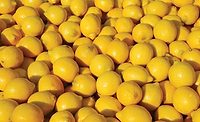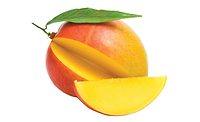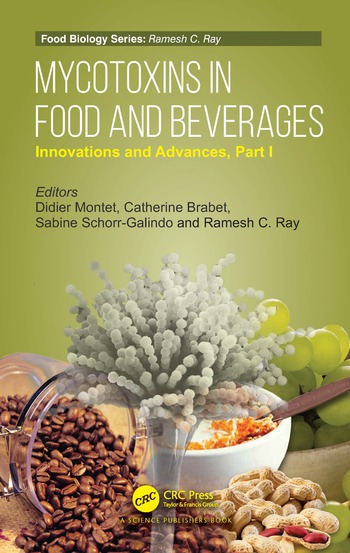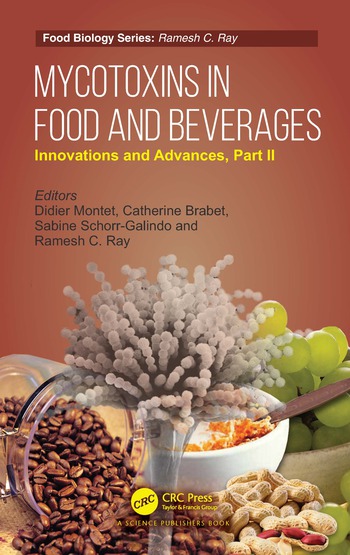Exotic fruits offer function, clean labels
Exotic fruits sweeten beverages, boost immunity
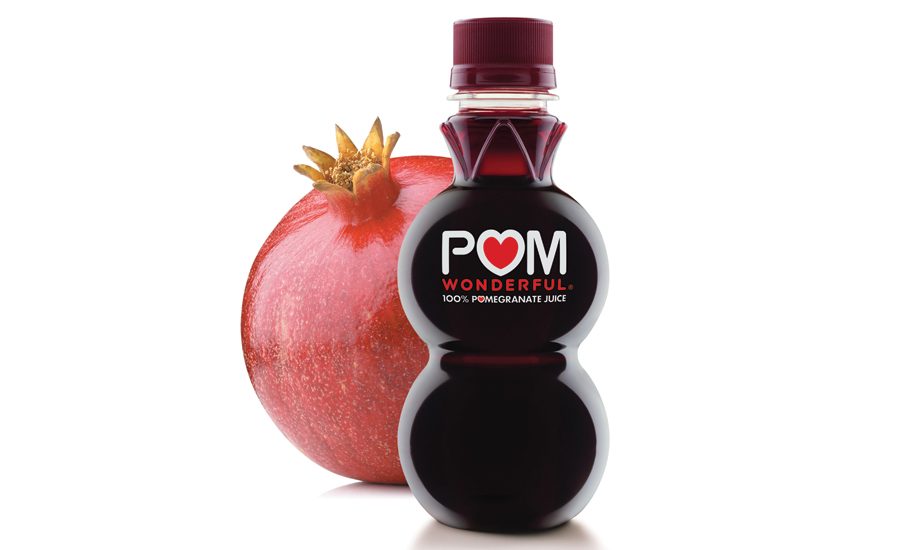
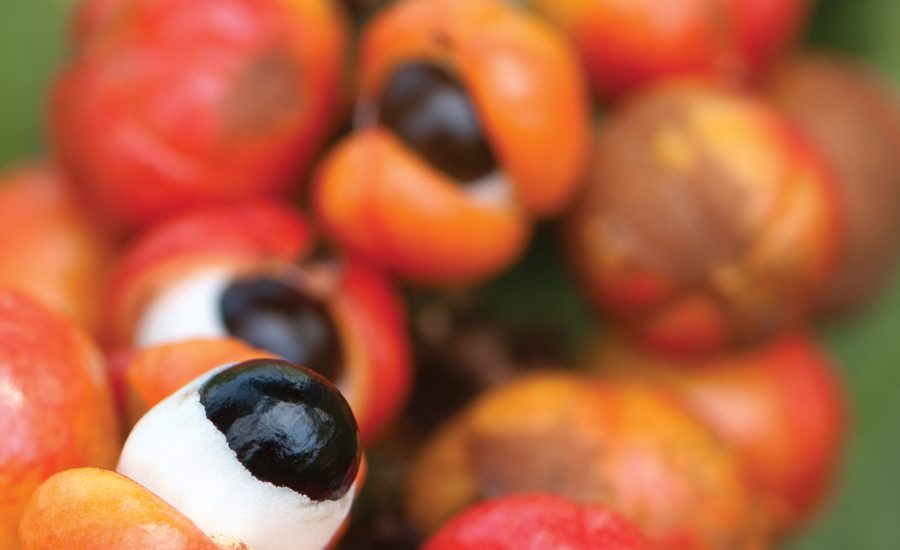


Although the U.S. Dietary Guidelines encourage Americans to eat more fruit, more than half are traditional options, such as bananas, apples, strawberries and oranges. Yet, as the beverage landscape has gotten more complex and exotic fruits have become more mainstream, consumers are experimenting with exotic fruits, including guaraná, lychee, dragon fruit, tamarind, pomegranate and mango for their exotic appeal, natural sweetness and enhanced, functional capabilities, according to ingredient suppliers.
Experts note that exotic fruits are becoming more of a staple in juices, flavored sparkling waters, energy drinks, spirits, ready-to-drink (RTD) teas and even coffees. They also are used in combination to flavor even more beverage applications, they add.
“The flavor options are limitless when it comes to exotic fruit varieties,” says Tina Rzeha, marketing associate at Hoffman Estates, Ill.-based Sensient Flavors. “Mango, starfruit, pomegranate, papaya and mangosteen are no strangers in our grocery stores anymore. Millennials are always looking for new flavor experiences and the more exotic the ingredients, the better.
“A good way of introducing exotic fruit flavors to consumers is by creating flavor hybrids,” she continues. “Exotic fruits in combination with fruits [that] consumers already know is an easy way of introducing them to something new. Exotic fruit flavors are popular because millennials are known to be the generation of world travelers. … They are not scared to try new or unfamiliar flavors. [They] appreciate when the origin of exotic fruits is being called out on product labels, giving the beverage a more authentic appeal.”
BI Nutraceuticals’ Product Manager Rikka Cornelia expresses similar sentiments. “Fruits — and even more so, exotic fruits — have always been looked upon as healthy, nutrient-packed foods,” she says. “Demand for acai skyrocketed a few years ago because of consumer desire for antioxidants and orange juice was not enough.”
The Rancho Dominguez, Calif.-based company notes that the rising ethnic population in the United States is influencing flavor trends from around the globe, especially from Asia and South America. “Exotic fruits, in particular, are popular in beverages because individuals are more willing to try unfamiliar ingredients in [a] beverage format,” Cornelia says. “Plus, it is difficult to find whole exotic fruits [without] a trip to a multi-cultural grocery store. Beverages easily deliver those fruits to consumers.”
As more beverages move to include exotic fruits, it’s important to note that consumers still are looking for simplicity, clean labels, more nutrition and great taste, adds Dahlia Reinkopf, senior director of marketing at Los Angeles-based The Wonderful Co.
“Consumers can get all of that by choosing POM 100% Pomegranate Juice for its complex sweet and tart flavor. Our juice is made with the juice of two whole pomegranates in every 8-ounce bottle and no added sugars, so consumers … can be confident in their choice.”
Tropical fruits like mango, guava, coconut and passion fruit also are becoming more familiar to consumers’ taste buds, according to Devon Edmonson, marketing coordinator at Mother Murphy’s Laboratories, Greensboro, N.C.
Additionally, more superfruits are emerging on the scene, including goji, mangosteen, dragon fruit and tamarind. “Exotic fruit flavors have nutritional benefits like vitamins, minerals and antioxidants. Some also offer skin and anti-inflammatory benefits as well,” Edmonson says.
She also notes that mainstream exotic fruits like pomegranate and mango mostly are used as the main, or only, flavor. “However, the more up-and-coming exotic tastes like lychee, acai and guanabana are often used in a blend or as a secondary flavor with more familiar berries or other fruits, so that the consumer feels more comfortable purchasing the product but still gets the exotic taste he/she is looking for,” she says.
BI Nutraceuticals’ Cornelia says that the mainstream popularity of coconut water also has helped beverage-makers become more innovative when using exotic fruits. “It only makes sense to pair it with exotic fruits [because] they complement it better than domestic, traditional fruits,” she says. “Coconut water is often used as the only flavor; pineapple as the main flavor in a blend; and mango as a secondary flavor.
“As of right now, exotic fruits are being incorporated in a beverage as a secondary flavor [because] a successful tactic is utilizing a common flavor profile with an added unique ingredient to entice the consumer,” she continues. “However, as exotic fruits become more prevalent in the market and consumer familiarity increases, they can become a main flavor or the only flavor, like coconut has.”
Adding a powerful punch
The Wonderful Co.’s Reinkopf says the company is educating consumers about the potential health benefits of its pomegranate juice because it contains potassium, polyphenols and antioxidants. “Our $40 million of previous and ongoing scientific research explores POM’s potential benefits in the areas of sports performance, memory and cognition, fetal health, gut health, and more,” she says.
For example, preliminary research into nitric oxide suggests that polyphenols from pomegranate extract might help enhance exercise efficiency, she says. “An eight-ounce glass of POM Wonderful 100% Pomegranate Juice provides 17 percent of your daily potassium — about the same as a medium banana,” she adds.
Although juices are the most popular beverage category for formulating with exotic fruits, BI Nutraceuticals’ Cornelia notes that RTD teas increasingly are being fused with exotic fruits because teas already are perceived as a healthy, better-for-you beverage.
“Incorporating exotic fruits adds a differentiation for not only their unique backstory and flavor, but they can also give the tea an added and/or intensified functional benefit. This also can be said for smoothies. … Alcoholic drinks are increasingly containing exotic fruits in their recipes, [which] can be attributed to the rising popularity of mixology.”
Sensient Flavors’ Rzeha adds that starfruit-and-kiwi or mangosteen-and-strawberry combinations are becoming more prevalent in beverage formulations. “Exotic fruit flavors can be found throughout every beverage category … as adding exotic fruits to these applications give them a certain sophistication that consumers appreciate and that sets products apart within the category.
“Many people have either drastically cut back or stopped drinking traditional sodas,” she continues. “[But] by adding exotic fruit flavors to sparkling waters and teas, consumers can still feel like they are indulging without having to feel guilty.”
As exotic fruits continue on an upward trajectory with consumers continuing to look for natural, better-for-you beverage options, ingredient suppliers expect that more beverage companies will incorporate them into their products.
“Millennials are driving the desire for premium and authentic products with exotic tastes, which is pushing beverage-makers for more innovation in these products,” Mother Murphy’s Edmonson says. “And because the flavor of some exotic fruits may be too strong, … our flavor chemists can help.“
There are more exciting things on the horizon for exotic fruits in the beverage industry, according to BI Nutraceuticals’ Cornelia. “I think we’ll see more daring blends and more use of exotic fruits as clean-label alternation, such as aronia berry as a natural color, acerola as a natural source of vitamin C and monk fruit as a natural sweetener,” she says.
Looking for a reprint of this article?
From high-res PDFs to custom plaques, order your copy today!





